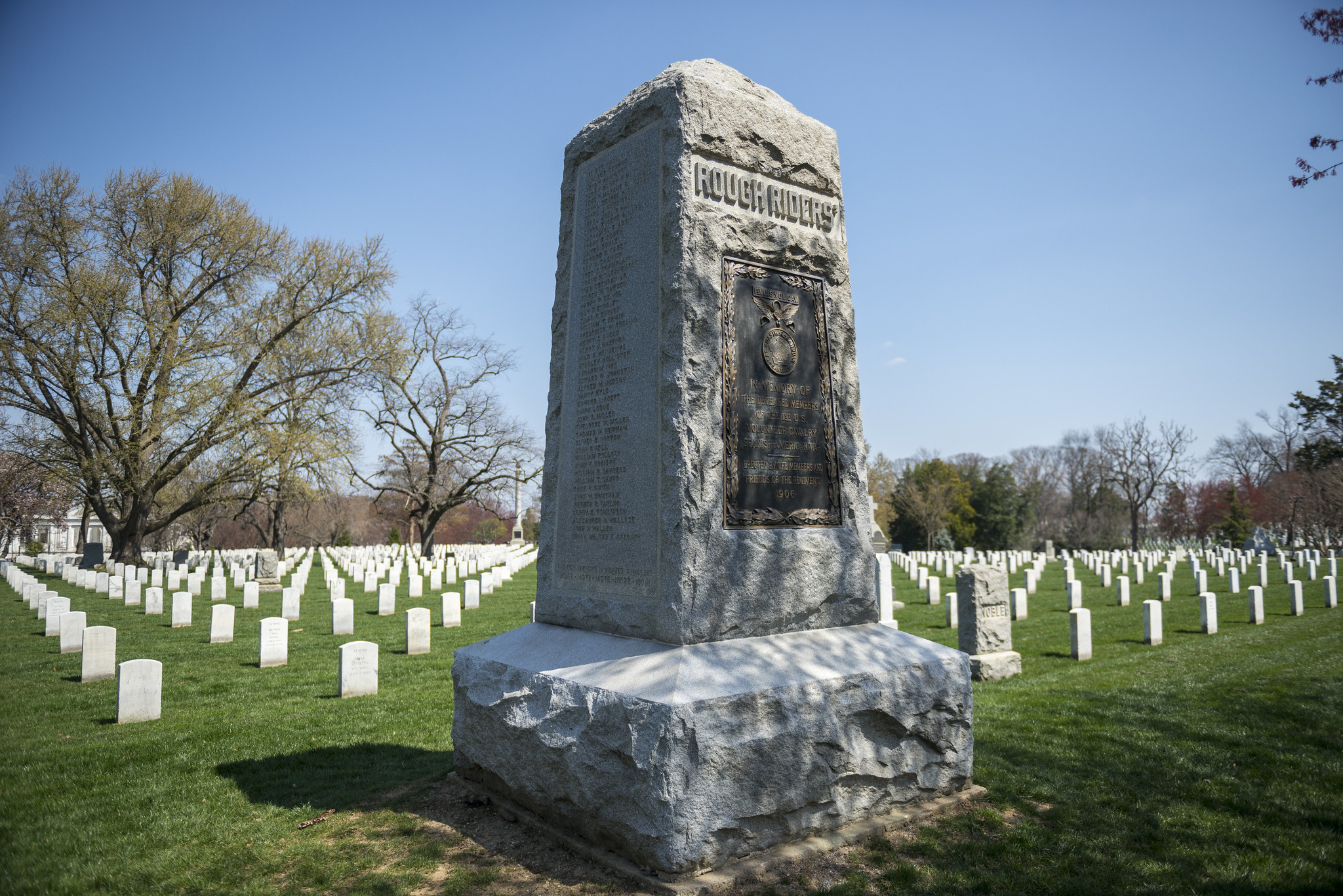Rough Riders Memorial

Arlington National Cemetery has more Spanish-American War memorials and gravesites than any other site in the United States. The nation's first major military conflict after the Civil War, the Spanish-American War (1898) played a key role in reuniting North and South, strengthening American nationalism and projecting U.S. power globally. In American culture, the United States' rapid victory over Spain seemed to affirm the so-called martial virtues — the fighting spirit and manly "strenuous life" famously celebrated, and symbolized, by Spanish-American War veteran and future president Theodore "Teddy" Roosevelt.
During the Spanish-American War, Roosevelt commanded the First U.S. Volunteer Cavalry, popularly known as the "Rough Riders." Perhaps the best-known cavalry unit in U.S. history, the Rough Riders became legendary after their charge up Cuba's San Juan Hill on July 1, 1898, during one of the most decisive and bloodiest battles of the war. These cowboy soldiers gained additional fame thanks to Buffalo Bill's Wild West Show, an enormously popular theatrical production that toured the United States and Europe at the turn of the twentieth century.
In 1906, members and friends of the Rough Riders erected a memorial in Section 22, near the gravesites of Spanish-American War soldiers and sailors. The dedication took place on April 12, 1907. The imposing gray granite pillar displays the First U.S. Volunteer Cavalry's insignia, and engravings list the battles in which the regiment fought — Las Guasimas, San Juan and Santiago — as well as the names of those who lost their lives. Another inscription reads, "In memory of the deceased members of the 1st U.S. Volunteer Cavalry, Spanish-American War, erected by the members and friends of the regiment, 1906."
See also: